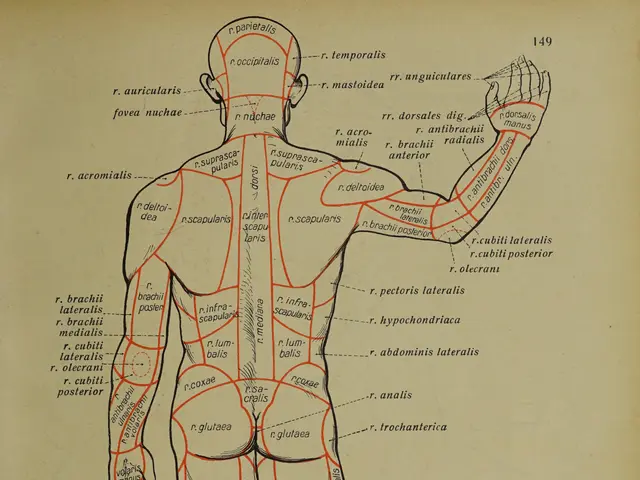The Impact of Exercise Timing and Regularity on Cardiorespiratory Fitness in Older Adults
Improved Fitness as You Age: Consistency in Daily Exercise Matters
A study published in the journal 'Medicine & Science in Sports and Exercise' suggests that regular, consistent daily exercise may contribute to better cardiovascular and lung health as we age. The research focused on older adults, with participants averaging 76 years old.
Experts have long known that cardiorespiratory fitness is crucial for longevity and health. This study aimed to identify whether maintaining a consistent daily exercise routine could further enhance this fitness as we age.
Participants wore wrist-worn accelerometers for seven days to measure their daily activity levels, and underwent cardiopulmonary exercise testing to assess their heart and lung health.
Researchers found that participants who displayed more activity during their active period of the day, relative to their resting time, and whose maximum daily activity occurred earlier in the day, exhibited superior cardiorespiratory fitness and walking efficiency.
Interestingly, the study also indicated that not only the amount of activity mattered but also the timing and consistency of activity. Those who had a more consistent daily activity pattern, with the highest activity period happening at the same time each day, experienced better health outcomes.
Lead researcher, Dr. Karyn Esser, emphasized that maintaining a daily exercise routine that takes into account the timing and consistency of activity is essential for long-term health. With aging populations, finding ways to improve health and quality of life becomes increasingly important.
These findings could lead to tailored exercise recommendations in the future, as researcher Dr. Cheng-Han Chen suggested. As more research is conducted, it may become clearer how optimising the rhythm of daily physical activity can contribute to better health outcomes in the years ahead.
- The study published in 'Medicine & Science in Sports and Exercise' highlights the importance of regular, consistent daily exercise for seniors, as it may enhance cardiovascular and lung health during the aging process.
- The importance of cardiorespiratory fitness for longevity and general health is widely recognized, and this study aimed to determine if maintaining a consistent daily exercise routine could amplify fitness in older adults.
- Participants in the study wore wrist-worn accelerometers to track their daily activity levels, and cardiopulmonary exercise testing was conducted to assess their heart and lung health.
- The research revealed that seniors who were more active during their active period and had a consistent daily activity pattern, particularly with the highest activity occurring at the same time each day, exhibited superior cardiorespiratory fitness and walking efficiency.
- Dr. Karyn Esser, the lead researcher, underscores the necessity of a daily exercise routine that considers the timing and consistency of activity for long-term health benefits, especially given the growing elderly population.
- The findings of this study suggest that tailored exercise recommendations in the future, based on the timing and consistency of activity, could lead to improved health outcomes for seniors, as further research is conducted in the field of aging, health, fitness, and wellness.








